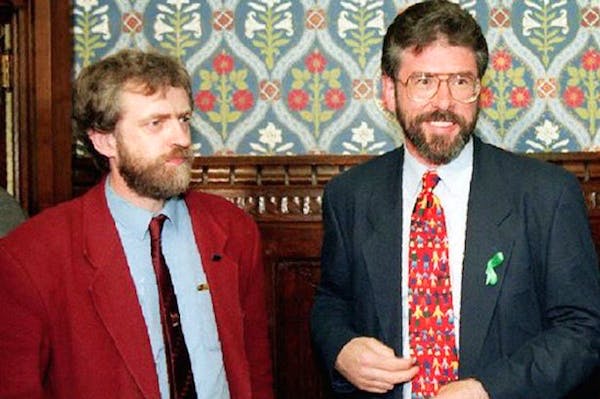I suppose that if you are under thirty, Northern Ireland seems a place far away and it must be difficult to imagine a time when news from the province was a regular feature of the BBC and ITV nightly news bulletins. The Good Friday Agreement, for all its imperfections and awkward compromises, settled something that now belongs to something close to ancient history. A YouGov poll last month suggested only one in five voters thought they knew even a fair amount about Jeremy Corbyn’s history with Sinn Fein, the IRA, and the wider republican movement.
The young can be forgiven their ignorance. But there are many people old enough to remember what really happened in the 1970s, 1980s and 1990s who seem determined to ignore historical record. In some curious, inchoate, fashion dredging these things up is considered poor form, tiresome carping on about dusty history and even, sometimes, an example of how a good and kindly man has been traduced by appalling people armed with nothing more than the historical record of what he did, what he said and what he thought.
Insisting upon the historical truth, demanding that we remember and acknowledge that what happened really happened, is now a ‘smear’ designed to influence the outcome of this election.

Get Britain's best politics newsletters
Register to get The Spectator's insight and opinion straight to your inbox. You can then read two free articles each week.
Already a subscriber? Log in







Comments
Join the debate for just $5 for 3 months
Be part of the conversation with other Spectator readers by getting your first three months for $5.
UNLOCK ACCESS Just $5 for 3 monthsAlready a subscriber? Log in